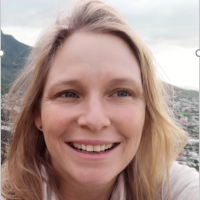
An Interview with Tamara Kredo on her appointment to the Cochrane Governing Board
“In this time the need for all countries to have the opportunity to input to high-level healthcare decision making is more important than ever,” said Tamara Kredo. “I’m therefore absolutely delighted to join the Cochrane Governing Board as a representative of low and middle-income countries.”
“COVID-19 and the resulting global health and welfare crisis has emphasised the need for greater collaboration to avoid duplication; enhanced advocacy for and communication of health evidence; and, for evidence that addresses the priorities of the poorest and most vulnerable,” she continued.
“It’s vital that we contribute to decision making on policies and practices as well as ensuring that published reviews are appropriate for the healthcare needs of all countries and populations.”
Tamara has had a long association with Cochrane and Cochrane SA.
“My introduction to Cochrane was a talk in Cape Town in 1997 by Jimmy Volmink, founding Director of Cochrane SA. Ten years later, during my specialist training, I conducted my first Cochrane Review. I was welcomed to Cochrane, mentored and provided with high-quality training sealing a relationship with Cochrane and Cochrane SA, and the wonderful colleagues that generously shared the ethos of the Collaboration. I have been working at Cochrane SA since 2010 aiming to impart this ethos in the country and region.”
Kredo has fulfilled several leadership roles including being Deputy Director of the Centre; co-directing Cochrane Africa, and as co-lead of SA GRADE Network. She was also a member of the Centre Directors Executive (now Geographic Groups) and has been on several strategic and advisory committees including acting as organising committee chair of the Global Evidence Summit in 2017. She is currently involved with the Knowledge Translation Evaluation Project developing tools for evaluating the impact of Cochrane’s work.
She was also a co-opted Trustee of the Guidelines International Network Governing Board, a member of the Cochrane Nutrition Advisory Board and is currently on the Advisory Board for Cochrane Sweden.
“These many experiences have provided insight into the importance of governance issues, organisation finance and resource management all driven and informed by alignment with strategic goals and a spirit of inclusivity.”
- Remaining true to the Cochrane principles of collaboration, striving for relevance, rigour and promoting access in the context of a growing organisation, increasingly complex systematic reviews and editorial processes, and the demand for greater diversity of communication formats for different audiences.
- Continuing to be a leader in evidence-synthesis methods development in the context of other emergent evidence synthesis groups.
- Striving to be truly global, by producing reviews that address priorities of relevance to the most vulnerable, and ensuring geographic, linguistic and culturally diverse representation in strategic groups and planning within the organisation.
- Improving the author experience and consistency of editorial approaches by better-resourced editorial systems and efficient review production including advancements in methods and technologies.
- Supporting the evaluation of impact of Cochrane Reviews, related products and activities for specific audiences by maximising engagement with geographic groups.
- Considering ways to sustain Cochrane into the future through continuing to explore publishing and funding models and new revenue-generation opportunities.
“I became involved with Cochrane because its driving principles resonated with my beliefs and commitment to inclusivity, with rigour, transparency and integrity. These are principles I stand by and will maintain as a Board member,” she said. “I am committed to working with colleagues and teams to approach decision-making collaboratively, respectfully and with clear sight on the higher aims of enhancing evidence-informed decision making and impacting healthcare and people’s lives. I value diversity in views, experiences and skills, as this brings richness and strength to our decisions and our organisation.”
“I remain enthusiastic about Cochrane’s work and its future potential as an organisation that remains central to the global discussion about healthcare evidence production and use and methods advancement,” she concluded. “I am committed to ensuring Cochrane remains a sustainable global organisation that embraces diversity, rigour and keeps patients and the public in the forefront."
